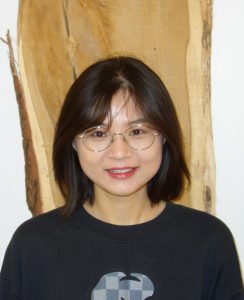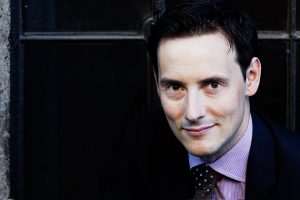Collaboration course increases committed PhD students understanding of LCA
This year a total of 21 students from seven different universities across Scandinavia participated in the PhD-course Advances in Life Cycle Assessment (5 hp).The course is a collaboration between the partner universities in the Swedish Life Cycle Center; Chalmers University of Technology, KTH Royal Institute of Technology, and Swedish University of Agricultural Sciences (SLU). Course leaders are Niclas Ericsson from SLU and Tomas Ekvall from Chalmers. The other members of the planning team are Anna Björklund at KTH, Anne-Marie Tillman at Chalmers, and Maria Rydberg at the Swedish Life Cycle Center.
– The course objective is to give a broad view of life cycle assessment (LCA) methodology and application, including knowledge on state-of-the-art research in selected areas, disseminate the expertise and experiences of senior LCA researchers to a new generation of PhD students and help create an informal network of young LCA researchers that can continue sharing knowledge and support each other throughout their careers, says course leader Niclas Ericsson at SLU.
This year´s course was affected by the pandemic, and all meetings and lectures took place online. During meetings, invited lecturers, representing various fields of life cycle research, presented and discussed methodological approaches and applications of life cycle thinking based on their research and their experiences of applying life cycle thinking in various areas. The students participated in group discussions where they could learn from each other’s experiences, reflect on their own and others’ research in view of earlier and current life cycle research, and discuss limitations and possibilities for future development of their work. The students also presented their current and planned work to others.
– To complete the course the students must participate actively in discussions during scheduled activities, prepare and present a group project about LCA research development in a broad perspective, and prepare and present an individual project about their own work in view of areas covered in the course, says Niclas Ericsson.
Took the course to understand LCA better
Shan Zhang is one of the students who just graduated from the course.
 – I am using life cycle assessment as a method in my PhD project, but since I didn´t have much experience from it, I took this course mainly because I wanted to gain a better understanding of the method and also develop my skills further, says Shan. Besides, I thought that it was a good opportunity to meet other LCA people and learn from them.
– I am using life cycle assessment as a method in my PhD project, but since I didn´t have much experience from it, I took this course mainly because I wanted to gain a better understanding of the method and also develop my skills further, says Shan. Besides, I thought that it was a good opportunity to meet other LCA people and learn from them.
Shan Zhang did her master study in Environmental Sciences, specialized in Environmental systems analysis, where she had learned different environmental assessment tools, including LCA, modeling, ecosystem accounting, cost-benefit analysis (CBA), multi-criteria analysis (MCA), environmental impact assessment (EIA), scenario analysis, and stakeholder analysis. During her master, Shan used a few of these methods in different case studies but she didn’t have the opportunity to do any LCA related case studies.
– This is a really well organised course. The class was very active during the group discussions, which created a very good learning atmosphere. I’m very happy with the content and what I learned from the course, says Shan. For the future, I would like to learn even more about prospective LCA and how to assess mineral resource use in detail. I’m also interested in learning how to combine LCA with other methods. I met many nice LCA people working on similar research topics as I do, and I hope that we can keep this sense of an LCA community even when the course is over.
Striving to improve LCA to better reflect reality
Another student that participated in the course was Gustav Krantz. He finished his master at KTH Mechanical Engineering in 2004, and since then he has mostly been working with fuels. During a consulting project he was analysing the consequences of tighter sulphur emission regulation for the marine industry and found that CO2 emissions were bound to increase due to the new regulations. In 2020 he started his PhD at KTH Polymeric Materials.
 – My PhD project is about improving LCA to better reflect reality, says Gustav. The debate of whether to use the attributional or consequential LCA is intense, and for some applications only one of the methodologies will provide results that are realistic. I took the course to better understand the latest developments of the field and to be able to discuss and develop my hypothesis in an environment of peers.
– My PhD project is about improving LCA to better reflect reality, says Gustav. The debate of whether to use the attributional or consequential LCA is intense, and for some applications only one of the methodologies will provide results that are realistic. I took the course to better understand the latest developments of the field and to be able to discuss and develop my hypothesis in an environment of peers.
Just like Shan, Gustav thinks the course was very well organised with high level speakers and enthusiastic participants.
– I hope that I will get to collaborate with both other students at the course, as well as with the teachers in my future research.
Funding
The course is funded by the research school Sustainable Biomass Systems (SLU), the graduate schools Energy and Environment, and Technology Management and Economics (Chalmers), and the KTH Circular Economy Initiative.
The PhD course was first planned within the Swedish Life Cycle Academy group which is funded through the project Innovation cluster for the life cycle perspective, funded by the Swedish Energy Agency and the Swedish Life Cycle Center partners.

